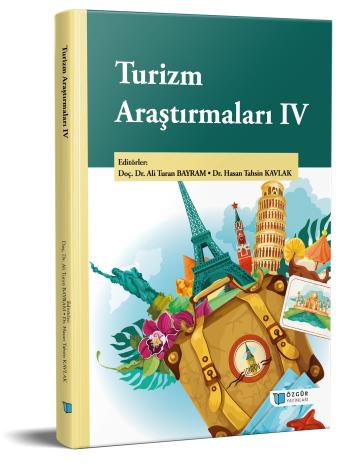
Sustainable Gastronomy Practices with Alternative Foods: Mollusca Species from Sea to Plate
Chapter from the book:
Bayram,
A.
T.
&
Kavlak,
H.
T.
(eds.)
2024.
Researches on Tourism IV.
Synopsis
The growing global population and limited natural resources have positioned environmental sustainability in food production as a critical priority. Traditional livestock farming presents significant environmental challenges, including high water consumption, substantial greenhouse gas emissions, and extensive land use, all of which are increasingly inadequate to meet the rising global food demand. To ensure the continuity of life, the development of alternative protein sources has emerged as a crucial solution for achieving food security while reducing environmental impacts. In recent years, sustainable alternative food sources—such as insects, plant-based meats, and seafood—have shown remarkable potential to address global food needs due to their low environmental footprint and high nutritional value.
Among these, Mollusca species, derived from marine ecosystems, stand out as a particularly promising option. Rich in protein, omega-3 fatty acids, and essential minerals, they also offer significant environmental advantages, including a low carbon footprint, minimal water usage, and reduced land requirements. Promoting the production and consumption of these species constitutes a strategic approach to meeting escalating food demands while alleviating environmental pressures.
This study focuses on the role of Mollusca species as alternative food sources within the context of sustainable gastronomy. By examining their applications in the culinary field, the research highlights their potential as a critical solution for future nutrition. Employing a conceptual framework, the study systematically compiles and analyzes data obtained through an extensive literature review, offering a detailed exploration of this topic.
In conclusion, the significance of Mollusca species within sustainable gastronomy extends beyond their contributions to healthy dietary habits and environmental sustainability. They also hold substantial potential to enhance gastronomic diversity. As sustainable alternatives to conventional food sources, Mollusca species are poised to play a pivotal role in shaping the future of nutrition. These findings underline the importance of developing policies aimed at influencing consumer behavior and fostering innovative practices in gastronomy. Integrating Mollusca species into culinary traditions presents a unique opportunity to address pressing challenges related to food security and environmental sustainability, offering a transformative pathway toward a more resilient and sustainable food system.

